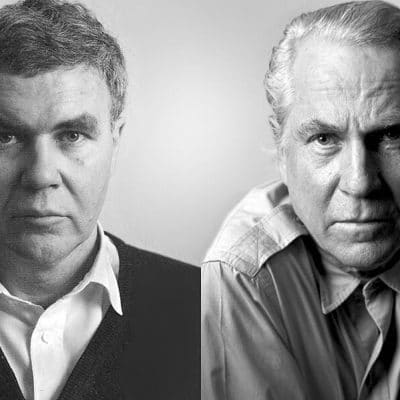
Raymond Carver was a short story writer and poet, recognized as one of America’s greatest writers. But how much of that is down to his editor, Gordon Lish? And how much editing is too much?
Creative Writing degrees love Carver. His stories are short, and his writing is a perfect model for minimalism. And at university, Carver became the most influential writer of my life. He replaced Hemingway, Ishiguro, and Kerouac all at once and easily. In my mind, there was no one better than Carver. I wanted to write just like him.
But it was the legendary editor, Gordon Lish, who was responsible for Carver’s minimalist style. Another of Lish’s writers, Barry Hannah, said this of his influence: “Gordon Lish was a genius editor. A deep friend and mentor. He taught me how to write short stories. He would cross out everything so there’d be like three lines left, and he would be right.”
When people talk about Lish’s editing, they say the following things. That Lish is a brilliant editor who helped create great stories and that Lish overstepped his boundaries.
Carver’s Collected Stories.
Around thirty years after most of his publications, Raymond Carver’s widow, Tess Gallagher, released some of Carver’s unedited stories in a 2009 collection titled Collected Stories. This publication brought Lish’s heavy editing into focus again.
Stephen King said that one story was “a total rewrite … a cheat.” And Giles Harvey noted that the publication “has not done Carver any favours. Rather, it has inadvertently pointed up the editorial genius of Gordon Lish.”
Although Lish and Carver’s relationship eventually soured, it’s clear that the arrangement between them was uncontroversial. Lish himself has said, “For all those years, Carver could not have been more enthusiastic, nor more complicit – nor complacent.”
But it was Lish’s reported hubris that people didn’t like, with Lish taking all the credit for Carver’s success. He even described Carver as “his creature” once. And Carver’s photograph wasn’t on the back jacket of his first book – Lish’s name was there.
Although Lish’s talent is unquestionable, his editing style continues to be a talking point. It’s best described as discovery rather than development. Instead of guiding the author, he takes the story and changes it. He saw the heart of Carver’s stories and stripped everything else.
Or did Lish strip stories of their heart?
How much editing is too much?
Reading Raymond Carver’s The Bath (Lish-edited) and comparing that to A Small, Good Thing (The same story without Lish) is a standout example of a story arguably losing its heart through heavy editing.
When a story, and characters within a story, become unrecognizable through editing, doesn’t the person who made the changes become a co-creator? A co-writer? Or is this all part of the editor’s role?
How much of an influence is too much? And would Carver have become one of America’s greatest writers without Lish?
